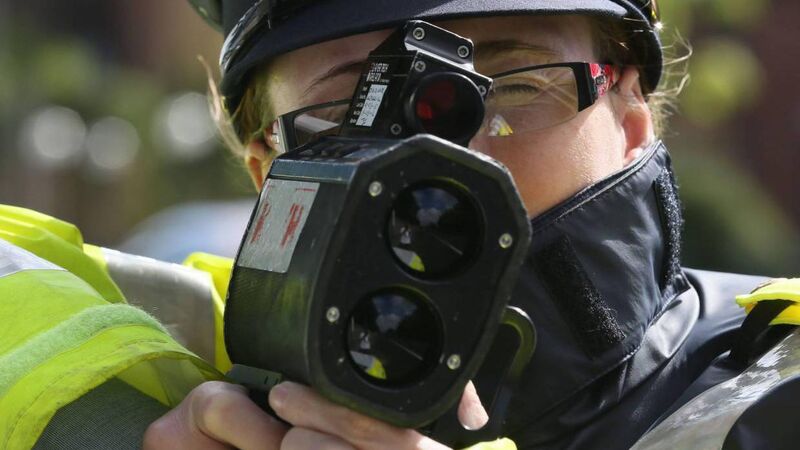5 ways we can try to reduce shocking death toll on roads

Whatever reasons are eventually determined to have been factors in the crashes in Clonmel, Clones and Cashel - or the chain of events that led to a toddler in Laois, a pedestrian in Dublin and a cyclist in Kerry being killed in the last week - we have got to tackle them all so that more families and communities don’t suffer such tremendous loss and lifelong grief.
Here are a few general issues from my own experiences that I would bring to motorists’ attention.
Distracted or impaired driving, weather conditions, fatigue and inexperience can all play a role in road traffic accidents, but speed must be one of the primary focuses for changing behaviour.
The physics of a car crash are hard to argue with. The unfolding of Newton’s Laws of Motion during an accident are why we have seat belts, air bags and crumple zones built into cars - to help absorb some of the energy of the collision.
The number of deaths on Irish roads so far this year is running almost 25% more than the total in the same period last year, and more than 40% ahead of the 2021 figure.
Stricter enforcement of traffic laws is needed, but so is a change in public consciousness that driving is a huge responsibility and must be undertaken with great care.
I’ve often wondered if the act of flashing headlights at oncoming traffic to warn drivers of a hidden speed trap around the corner is an Irish peculiarity.
Is it a leftover from our colonial past, that we like getting one over on authority and depriving a poised Garda or parked speeding van of issuing a ticket? Rather than seeing it as an opportunity to detect dangerous driving and deter future speeding.
Excessive speeding reduces a driver’s reaction time and increases the severity of accidents.
A European Commission report on road safety estimated that 30% of all fatal crashes are the direct result of speeding or inappropriate speed. Reducing the average speed by 1 km/h on all roads across the EU would save more than 2,000 lives per year.
Research in the United States (hence the mph) found that if a pedestrian is struck by a vehicle at 24mph (38 kmph), they have a 10% risk of dying. This goes up to 25% at 32mph (52 kmph), and 50% at 41mph (66 kmph).
A reduction in speed is associated with a reduction in casualties.
Many cities worldwide have implemented lower speed limits in urban areas. Paris reduced its speed limit to 30 kilometres per hour in 2018 on roughly 60% of its road network. In 2021, it extended the 30km/hour limit everywhere except main ring roads and highways.
Critics say the speed limit is anti-car and unnecessary because there are very few road deaths in Paris, which is an opinion I’m sure they don’t discuss in front of a relative whose loved one was killed by a car.
My neighbours do a lot of online shopping. I know this not because they regale me with stories of their recent purchases, but because of the number of large delivery vans that come to our road every day depositing parcels at various houses.
The reason I notice the delivery vans is because many of them arrive and depart at ludicrous and entirely inappropriate speeds.
Approaching the entrance to our neighbourhood, road drivers are met with signs indicating that this is a 30km zone, and signs that children are playing in the area. Our road is home to 22 children, some of whom might be riding their bike, bouncing a basketball, or playing chase at any given time.
Van drivers under pressure to hit targets and meet next day delivery promises speed out of our road at twice the speed limit on a regular basis.
I’m guilty of hurrying out of my driveway on occasion when late for something (and regularly tell myself to chill and slow down), but the ferocity that these vans roar away with is frightening. If any child runs across the road at the wrong time in the path of these vans, they are dead.
Which is why, every time my kids leave the house to call for a friend, I say ‘Be careful on the road’. What I really mean is ‘Don’t get injured or killed by a car’.
We’ve all seen it (and possibly committed the transgression ourselves). A person texting in traffic, or maybe scrolling through social media. Sometimes their eyes are focussed on their laps for so long, you wonder have they sprouted extra eyes on their hairline.
If you drive while using a mobile phone, you get three penalty points and a €120 fine. It’s a bad road habit that needs to be clamped down upon.
According to the World Health Organisation, approximately 1.3 million people die each year around the world because of road traffic crashes.
More than half of those deaths are among pedestrians, cyclists, and motorcyclists.
Isn’t it a form of madness that we tolerate a situation that allows cars to kill so many and don’t introduce stricter protection?
We’ve all reeled from the recent sad stories of lost lives here in Ireland and there must be a collective realisation that we need to change our ways on the road.







 App?
App?




